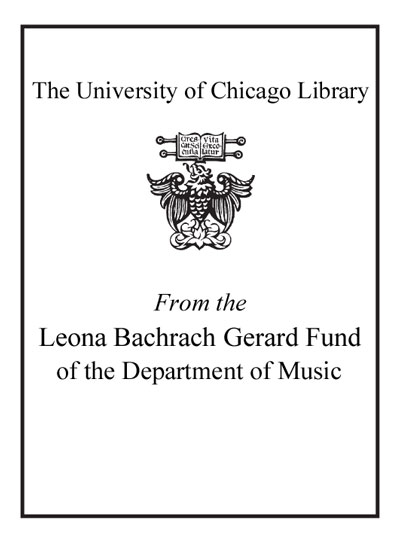Review by Booklist Review
Best known as one of the foremost lyricists of the golden age of American popular song--writer of standards including One for My Baby, That Old Black Magic, and Moon River --Johnny Mercer was also a singer, record-company executive (he founded Capitol Records), and occasional composer. A popular radio personality with a happy-go-lucky persona, he was actually desperately unhappy, trapped in a loveless marriage (made more miserable by a stormy, long-lasting affair with Judy Garland), and a notoriously nasty drunk. Lees explores Mercer's halcyon childhood in Savannah, where he was exposed to the black culture that informed his work; his struggles to establish himself on Tin Pan Alley; his Hollywood glory years; and his despair as his style of music gave way to rock and roll. Lees was a friend of Mercer's and is a successful lyricist himself--circumstances that allow him especial insight into Mercer's personal and professional life. He demonstrates how Mercer's lack of pretense gave his lyrics the common touch and movingly discloses the underlying melancholy in Mercer's best songs. --Gordon Flagg Copyright 2004 Booklist
From Booklist, Copyright (c) American Library Association. Used with permission.
Review by Publisher's Weekly Review
Johnny Mercer wrote some of the best-known lyrics in the American repertoire ("Moon River"; "Black Magic"; "Accentuate the Positive"; etc.); he won four Academy Awards for his songs and helped found Capitol Records. Lees, a biographer (Oscar Peterson: The Will to Swing, etc.) and publisher of the award-winning Jazzletter, met Mercer in the twilight of his career and maintained a friendship with him until Mercer's death in 1976. Lee's biography differs from Philip Furia's more scholarly and novelistic Skylark: The Life and Times of Johnny Mercer chiefly in its conversational tone and in Lees's confident, insightful analysis of the music, but it also must bear the weight of the author's feelings about Mercer's family and career. The decline of Mercer's fame roughly coincides with, as Lees puts it, the death of "the golden age of American songwriting" and the "rising tide of the meretricious" (read: rock and roll), and the book periodically gets bogged down in Lees's curmudgeonly grumblings about the superiority of the big band era. Lees also seems unnecessarily judgmental in his accounts of Mercer's marriage to Ginger Meehan, whom he blames in part for her husband's depression, angry tirades and alcoholism. Lees's personal accounts are more illustrative than informative, confirming an already well-documented picture of Mercer's generosity and intelligence as well as his alcoholic vitriol. (Oct. 26) (c) Copyright PWxyz, LLC. All rights reserved
(c) Copyright PWxyz, LLC. All rights reserved
Review by Library Journal Review
A former editor of Down Beat, Lees brings his expertise in jazz and American popular music to this entertaining biography of lyricist and performer Johnny Mercer (1909-76). Drawing on the unpublished manuscript of Mercer's autobiography and interviews with the artist's relatives and friends, Lees creates a fully realized study of the mercurial songwriter who provided texts for some of the 20th century's most memorable songs. Mercer's strong family ties in Savannah, GA; his long, if bumpy, marriage to Ginger Meehan; his "secret" affair with Judy Garland; and his cofounding of Capitol Records are among the factors chronicled here. This is a well-written and engrossing narrative; however, Philip Furia's recent Skylark: The Life and Times of Johnny Mercer covers the same territory, and its quotes and stories overlap with Lees's to a great extent. This title is distinguished from Furia's by the inclusion of Mercer's text and more extended family excerpts-Mercer's daughter, in fact, asked Lees to write this book-but either would be sufficient for most libraries. Recommended where demand dictates, especially for American pop music and Southern regional culture collections.-Barry Zaslow, Miami Univ. Libs., Oxford, OH (c) Copyright 2010. Library Journals LLC, a wholly owned subsidiary of Media Source, Inc. No redistribution permitted.
(c) Copyright Library Journals LLC, a wholly owned subsidiary of Media Source, Inc. No redistribution permitted.
Review by Booklist Review
Review by Publisher's Weekly Review
Review by Library Journal Review

